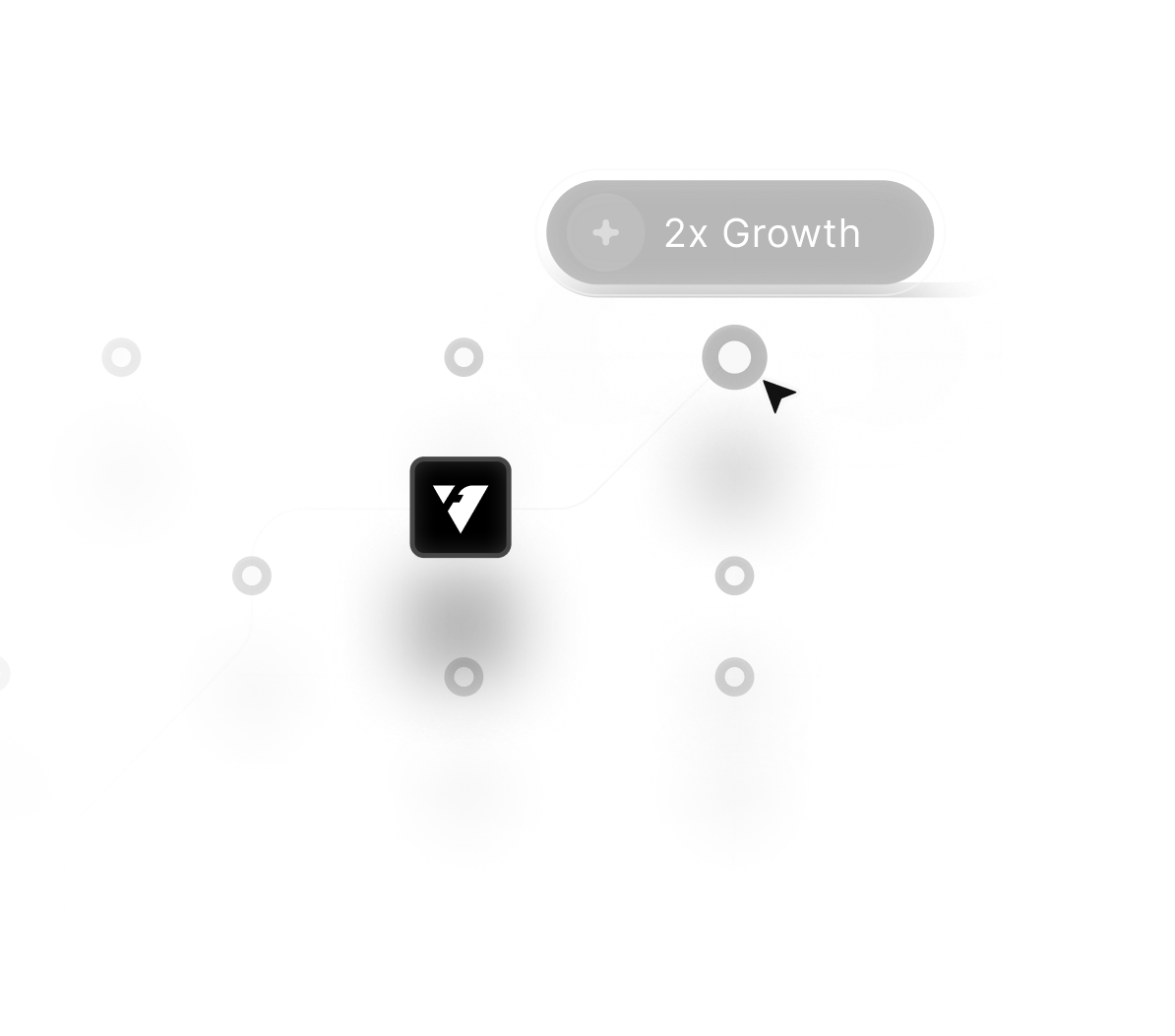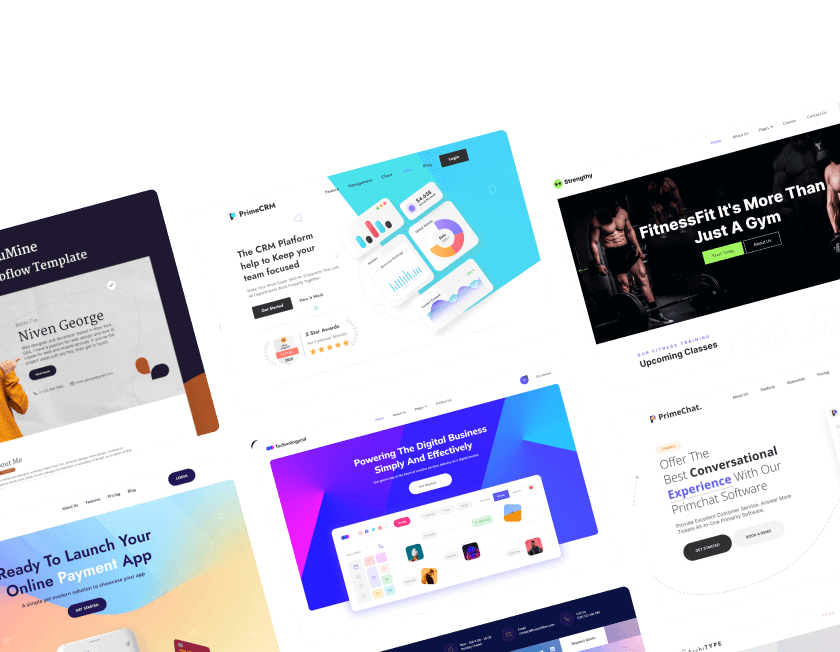
Launching a SaaS website in 2026 means balancing brand identity, user experience and technical performance from day one. Webflow empowers teams to translate product value into polished digital presence without prolonged development cycles.
Marketing and product teams gain control of layout, content and visuals so brand consistency remains intact across initiatives. Responsive design becomes crucial for SaaS sites engaging mobile users, and Webflow delivers adaptability across devices.
CMS flexibility enables frequent updates like blog posts, case studies and feature releases to keep your website fresh and relevant. SEO-ready architecture, clean code and built-in hosting support help SaaS companies capture organic growth efficiently.
Integration with analytics, CRM and automation tools allows Webflow sites to connect into existing SaaS workflows seamlessly. Rapid iteration for landing pages, onboarding flows and campaign sites gives SaaS teams agility in the market.
Security, speed and scalability strengthen credibility for SaaS brands, and Webflow’s infrastructure supports these demands. Growth in SaaS demands adaptability, and Webflow ensures your website evolves in sync with your product journey.
"Empower your team with control over content and design.
Claim your free SaaS guidance call now."
Table of Contents
- What is Webflow?
- Key Features of Webflow For SaaS Projects
- Advantages of Using Webflow For SaaS Websites
- Potential Limitations of Webflow for SaaS in 2026
- Webflow vs Competitors: A Comparison
- Is Webflow the Right Choice For Your SaaS Project?
1. What is Webflow?

Webflow is a cloud-based website-building platform that allows users to design, build, and launch websites visually, without the need for extensive coding skills.
It combines the best of no-code and low-code functionalities, enabling both designers and developers to create highly customized websites that stand out in the competitive SaaS landscape.
Webflow has made significant strides in recent years, particularly as more businesses embrace no-code solutions.
For SaaS projects, Webflow provides a powerful tool to develop and manage websites that are both scalable and visually appealing.
If you're considering Webflow for your SaaS project, you can explore it here: Webflow - Build Your SaaS Website.
2. Key Features of Webflow For SaaS Projects

As we move into 2026, Webflow continues to offer a comprehensive range of features that make it an ideal choice for SaaS websites:
- Visual CMS: Manage and update your dynamic content with Webflow's intuitive content management system, perfect for SaaS businesses that regularly update their content.
- Customizable Design: With Webflow, you can create stunning, responsive designs that reflect your brand's identity without being confined to traditional templates.
- No-Code Development: Webflow enables teams to build a functional website with minimal coding, making it accessible to marketing teams and designers.
- Fast Hosting and CDN: Webflow's hosting is powered by AWS and Fastly, ensuring fast loading times for a better user experience and improved SEO.
- E-commerce Capabilities: Webflow’s built-in e-commerce tools make it easy to create subscription-based services, an essential feature for many SaaS businesses.
3. Advantages of Using Webflow For SaaS Websites
Want to find hidden revenue leaks on your SaaS website?
Get our free 47-point SaaS Website Audit Checklist → Download now

There are several reasons why Webflow may be the best platform for your SaaS project in 2026:
- Design Freedom: Unlike many website builders, Webflow allows complete control over your website’s design, ensuring that your SaaS business can create a unique and memorable user experience.
- SEO Optimization: Webflow has built-in SEO tools that make it easier to rank higher in search results, crucial for driving organic traffic to your SaaS website.
- Scalability: Webflow's flexible plans allow you to scale your website as your business grows, whether you're adding new features, pages, or content.
- Collaboration Tools: Webflow enables teams to collaborate in real time, making it easier to manage updates and development projects.
For a deeper comparison of Webflow’s SEO capabilities against other platforms, you can check out these related comparisons:
4. Potential Limitations of Webflow For SaaS in 2026

While Webflow offers many benefits, it's important to consider some limitations before choosing it for your SaaS project:
- Steeper Learning Curve: If you’re new to design and development, Webflow might require more time to learn compared to simpler platforms like Wix or Squarespace.
- Limited Plugins and Integrations: Although Webflow supports many integrations, it doesn't have the same vast ecosystem of plugins as platforms like WordPress.
- Cost: Webflow’s pricing plans, particularly for larger SaaS websites, can be more expensive than other platforms, so it’s important to weigh the value of its features against your budget.
If you want to explore how Webflow compares to other platforms, such as WordPress, check out this in-depth analysis:
5. Webflow vs Competitors: A Comparison

How does Webflow stack up against other popular platforms in 2026? Let’s take a closer look at some comparisons:
- Webflow vs. WordPress: While WordPress offers thousands of plugins and customization options, Webflow provides a cleaner, more intuitive design interface with no code. Webflow is better for users who need design freedom and are less dependent on a plugin ecosystem.
- Webflow vs. Squarespace: Squarespace is easier to use for beginners, but lacks the customization that Webflow offers. For a SaaS business, where unique design and branding are crucial, Webflow is often the better option.
- Webflow vs. Wix: Wix offers simplicity and affordability but lacks the professional-grade tools and scalability Webflow provides for larger SaaS businesses.
You can find more detailed comparisons of Webflow versus these platforms in the links provided earlier. These resources will help you understand which platform might be the best fit for your needs.
6. Is Webflow the Right Choice For Your SaaS Project?

Ultimately, whether Webflow is the best choice for your SaaS project in 2026 depends on your specific needs.
If you're looking for a platform that offers full design control, scalability, and SEO optimization, Webflow is an excellent option.
However, if you're looking for a platform with a broader range of plugins or you’re working with a limited budget, you may want to explore alternatives like WordPress or Wix.
That said, Webflow remains one of the top choices for SaaS websites, especially for businesses that prioritize design and performance.
Conclusion
Design, performance and content management come together when using Webflow for your SaaS website in 2026. Teams benefit from visual editing, dynamic content updates and integrations that keep marketing and product aligned.
A website built on Webflow supports rapid growth, adapting to new features, pages and campaigns without structural overhaul. Consistency in brand experience across all pages builds trust and clarity for your SaaS users.
Speed and reliability improve conversions, reduce bounce rates and enhance user perception of your product. Customizable sections and layouts let your website stand out while reducing dev overhead and maintenance strain.
Webflow’s scalability and hosting infrastructure prepare your business for traffic spikes, product launches and global users. Fewer technical dependencies mean your team can focus on innovation rather than platform maintenance.
Using Webflow for your SaaS project in 2026 allows you to build, iterate and grow online with confidence.

FAQ
1. Why is Webflow a strong choice for SaaS websites?
It provides design freedom, fast updates and built-in hosting, allowing your team to focus on product and growth.
2. Can marketing teams update content without developer support?
Yes, Webflow’s visual editor and CMS let non-technical teams manage blog, landing pages and updates independently.
3. How does Webflow support SEO for SaaS brands?
It offers meta-tag control, clean semantic code, sitemap generation and fast load times for better visibility.
4. Is Webflow scalable for SaaS businesses expecting growth?
Yes, although very complex backend logic or user portals might need additional customization.
5. What integrations does Webflow support for SaaS stacks?
It connects with analytics, CRM systems, payment processors and automation workflows for smooth operation.
6. Are there any drawbacks to using Webflow for SaaS websites?
While excellent for marketing and content sites, heavy backend or user portal features may require external tools.
Table of Contents
Choose Our Service, Grow Fast!
Follow Us
Related Posts

February 19, 2026
Build consistent branding experiences with these curated Framer design guideline templates that are clean, responsive, and ready to edit effortlessly.
Build consistent branding experiences with these curated Framer design guideline templates that are clean, responsive, and ready to edit effortlessly.


Explore 35+ best Webflow design & development agency websites with top-tier UI/UX, fast performance, and conversion-focused strategies.
Explore 35+ of the best Webflow design & development agency websites with top-tier UI/UX, fast performance, and conversion-focused strategies.


Relaxation-focused Webflow templates in 2026 bring modern spa aesthetics, fluid booking flows, and soothing layouts for massage studios seeking timeless online appeal.
Relaxation-focused Webflow templates in 2026 bring modern spa aesthetics, fluid booking flows, and soothing layouts for massage studios seeking timeless online appeal.

Ready to Scale Your Project to the Next Level?
Let's take your project to new heights, reach out and see how we can help you.




















